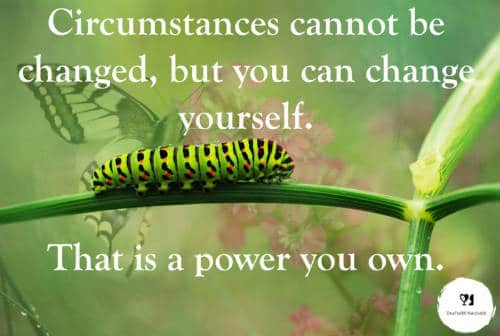As the son of a narcissistic father, I witnessed a variety of unhealthy behaviour in my youth. This could be frightening and confusing and I wish I learned about narcissism earlier on. My experience motivated me to research what could be signs that a parent is narcissistic and what is typical narcissistic behaviour. I combined this research with my own experience and this resulted in a list of 12 possible signs of narcissistic behaviour shown by parents.
I sincerely hope you don’t have a narcissistic parent or possibly even both. If you do, however, it’s good to be informed in order to be able to deal with it in a better way. I also wrote an article about what I learned from my narcissistic father, which you can read here.
Narcissism
Narcissism is characterized by a lack of empathy, a hunger for admiration and validation, increased ego, and grandiosity. This results in superficiality, greediness, and self-centered behaviour.
When someone shows narcissistic behaviour, it does not mean that someone is a narcissist. Anyone can show narcissistic behaviour. It depends on the frequency and intensity of shown narcissistic behaviour. A narcissist will show this behaviour regularly and has a very unhealthy influence on their environment, as they don’t mind using other people for their benefit.
A narcissistic parent
A narcissistic parent can, on the one side, see his or her children as a reflection of themselves, which results in pushing a child to excel at something and needing them to be a success story. There will be a need to control and a lot of involvement to get this done. On the other side, a narcissist could not get the admiration that they think they should get from a child, which can lead to entirely losing interest in the child and seeking other sources for admiration or attention.
The similarity in the above is that there is always a form of disconnection between narcissistic parents and their children. This is because there is no real empathy or unconditional love and thus there can’t be any real emotional connection.
Having a narcissistic parent probably results in wearing a mask in order to protect yourself. It leads to identity questions and can have lifetime consequences. You could be trained to think about the expectations of the narcissist and not being stimulated to develop as an individual with your own thoughts, feelings, and needs. Therefore, when having narcissistic parents, it’s essential to start working on yourself and shift the attention from the narcissist to yourself.
Now, I’ve composed the following list of 12 possible signs of narcissistic behaviour from parents.
12 signs of a narcissistic parent
1. Fulfilling their dreams through you (trophy kid)
A narcissistic parent can push a child to excel at a certain sport, musical instrument, or hobby. In this case, their child must be a success story. If you have narcissistic parents that want you to fulfill their dreams, there will be a lot of expectations you need to live up to.
It may feel like you are being pushed to do certain hobbies or a sport. You probably don’t even remember consciously choosing to do it or wanting it. Not coincidentally, it’s exactly what your parent loves and they for example ‘never got the chance to go for it despite their talent’. Of course, they would be successful but they didn’t have a fair chance due to all kinds of reasons. They might say they had to go to work or had an injury or something. But for you, there is an opportunity so you better make it a success! You owe it to them, they think.
There are two outcomes here when dealing with a narcissistic parent: If you succeed it’s because of the talent and guidance of your narcissistic parent, and if you fail it would be because you are sadly less capable than your parent. It’s basically what narcissists do in general: taking responsibility/credit for positive things and blaming others or avoiding responsibility when it comes to negative things.
It might feel like you must like something because they like it so much and they might be very happy about you doing it. If you feel like it’s not an option to stop doing it, this is a sign of pressure and possibly you’re dealing with a narcissistic parent. Of course, it’s possible you like the same things as your parents, but your actions should follow from your own thoughts, emotions, and choices about what you like or want.
2. Showing you off for his or her confidence
A narcissistic parent might want to show you to the world in the very best way possible. Your success will be their success. Actually, it will only be their success; you are just lucky you are their child and got the opportunity from them. If you get compliments it can boost their self-worth or ego as they pull those compliments towards them.
Clearly, not all parents that want their children to succeed are narcissistic. A narcissistic parent differs in the active denial of their children having a sense of independent self-hood. Their children exist to serve them and their ego’s.
3. Attention: all about them
Narcissistic parents will find a way to get any conversation about them. Did you get a good grade? Say thanks to the intelligence of your narcissistic parent! Did you win a sports game? Thanks to the talent you got from your parent or their great support! A narcissistic parent can pull any positive attention towards them, because of their constant need for validation.
4. Marginalization and putting you down
This is the other side of wanting a kid to succeed. Some narcissistic parents see their children as a danger because their success will challenge the greatness and self-esteem of the parent. In this case, such a narcissistic parent will try to put you down. This could be anything to make you feel bad, insecure, and less worthy. This is brutal and will drain your energy.
5. Smear campaigning others
Another sign of narcissistic parents is negative propaganda about others. They can be very positive about people that they control, but they can also just disrespect and talk badly about the people they don’t control or like. They don’t see individuals as human beings and from their inflated self-image they will think ‘I am better than that person’.
This would be a narcissist feeling ‘superior’ and showing grandiosity. You will probably sense when a smear campaign is going on. Sometimes it can be used to lose contact with people that are a threat to the narcissist. This could be someone that sees what is going on and recognizes the manipulation by a narcissist.
6. Showing off in public events
Maybe you had to go to parties or events and show your best behaviour. I always had to show myself at parties to show that we had a happy family and we were successful kids going to university. A narcissistic parent could thus enjoy publicly parading and showing accomplishments to the world. It’s all about the attention and being so very special!
7. All kinds of manipulation
There is quite a variety of manipulation going on when having one or two narcissistic parents. Narcissistic behaviour doesn’t necessarily mean someone is a narcissist, but the extent, intensity, and the quantity of this behaviour do tell you a lot.
The most common sorts of manipulation consist of:
– Unreasonable blaming you of all sorts of things: ‘Because of you I can’t be happy’ or ‘You stole my life’
– Guilt game: ‘You should be more thankful of all I have done for you’
– Shame: ‘You are a disgrace’, ‘I am ashamed of you’ or ‘You are an embarrassment’.
– Negative comparison: ‘I wish you were as smart as your sister’
– Pressure about expectations: ‘You must succeed at baseball or else no more financial support for you’ or ‘Why can’t you just do as I say?’
This can be all very painful and manipulative behaviour. Love seems to be conditional if you’re dealing with narcissistic parents. You will get love when you succeed or play the game right. Sadly, this is not what real love is. You can read more about unconditional and conditional love in my article going into narcissism and love.
8. Childish behaviour
A narcissistic parent can show very childish behaviour. They could be competitive with you and act jealous. My mother told me it felt like she had 4 children instead of us 3 children, because of how my father behaved. He acted as the most childish person in the household. He had no control over his emotions, needed all attention telling jokes or stories, and when things didn’t go his way he would make sure to create a bad atmosphere for everyone.
My mother told me about a time my narcissistic father was building a brick wall in the garden. He literally needed compliments and appreciation with every brick he put in the wall. He was like a child showing it can ride a bike without his or her hands. My mother had to watch him and constantly keep her attention to him.
9. Tense and unpredictable reactions
There can be some triggers causing unpredictable reactions when interacting with a narcissistic parent. When I was around the age of 10, my father was always busy in his home office and he did not like to be disturbed. When dinner was ready we were scared to tell him. We had to open the door and say that dinner was ready. He mostly would respond very disturbed and mad, saying ‘I AM COMING’ loud and angry. He would sigh a lot afterward and kept showing his frustrations for a long time.
This was just about being around him at the wrong time, I guess. I have to say I still remember the feeling of having to tell ‘dinner was ready’ specifically, which means it made quite an impact on me. I did not understand this aggressiveness and frustration. Wasn’t it a good thing when someone made dinner for you? As a child, it’s hard to not blame yourself and protect yourself from these excessive kinds of behaviour.
A narcissistic parent can thus be easily triggered and be very touchy. This mainly seems to occur when something unexpected happens or is out of their control or expectations.
10. Lack of empathy
A common sign of having a narcissistic parent is that there is no acknowledgment of the child’s thoughts and feelings. It’s all about what the parent thinks, feels, and does. Your feelings or thoughts as a kid are irrelevant and unimportant. Possible responses can be to fight (stand-up for yourself), flight (create distance), or freeze (playing a role). My response was freezing when around my father, where I learned to play a role to survive the situation.
A lack of empathy could also be recognized in how the one narcissist parent may treat the other parent. They might put the other parent down or make negative jokes about them. My father would make a lot of negative comments about my mother hidden inside jokes. No one thought it was funny, but it seemed he almost impulsively needed to put her down in that way.
11. Dependency
Some narcissistic parents think their children should take care of them forever and/or want to create a dependency on them. There will be a lot of manipulation needed to create this (co)dependency. This could be for example emotional or financial dependency. Dependency doesn’t necessarily have to be a bad thing, but in this case, the parents’ expectations or demands are not reasonable.
The needs of the child will be secondary and it will all be about the parent. It will be to the level of sacrificing your own life just to keep your narcissistic parent happy. This can happen if a child never breaks free from the influence of a narcissistic parent and therefore not being able to develop into an independent human being.
An example would be someone still living with his or her narcissistic mother and having to take care of everything, while the mother is being only very selfish, dominant, and ungrateful.
12. Neglect
Sometimes a narcissistic parent is so self-absorbed that he or she will not care or find any use for the child. This is thus the opposite of creating dependency. They will focus only on themselves and leave the child be. The child doesn’t provide any of the needed validation and the narcissist will seek it somewhere else, such as in career or social activities.
Stop wanting to be loved by a narcissist
There will always be a point where you would have to accept that your parent is a narcissist or at least showing a lot of unhealthy narcissistic behaviour. This means letting go of hope and accepting that they won’t connect with you on a deeper level. Stop searching for love and/or approval. Sadly, the emotional connection will not come.
There seem to be quite a lot of narcissistic parents all showing a different variety of narcissistic behaviour. It can result in physical or emotional abuse and it can be very lonely. It’s tough to grow up with a narcissistic parent. There needs to be balance for children, which requires empathy, love, and compassion.
You will probably experience a lot of doubts and insecurity as a kid of a narcissistic parent. As narcissists are dominant and pull all attention towards them, it can be difficult to have your own thoughts and identity. Also, there could be a lot of internalized guilt or shame.
You could also have brothers or sisters and there is a chance they could become or behave narcissistically as well. This could create an even more unhealthy dynamic in the family. If you think you possibly have a narcissistic brother or sister you might be interested in reading my article about narcissistic siblings.
Working on yourself and finding positive examples
It all means you have to find out on your own how to love and care for others and yourself. You deserve your own attention, kindness, and love. If you have a narcissistic parent you need to work on self-worth, confidence, setting boundaries, and developing as a person, which might not have been stimulated in a healthy way.
Try to find positive examples and think about the people that sincerely appreciate you. It’s important to see how things can be in a positive way! If you want to read about what I have learned from having a narcissistic father you can read it here.
I hope this article provided some insights and can be helpful for you!

Did you like this article and is it helpful to you? I encourage you to share, like, follow, comment, and possibly subscribe to my newsletter to receive monthly updates of my activities!

